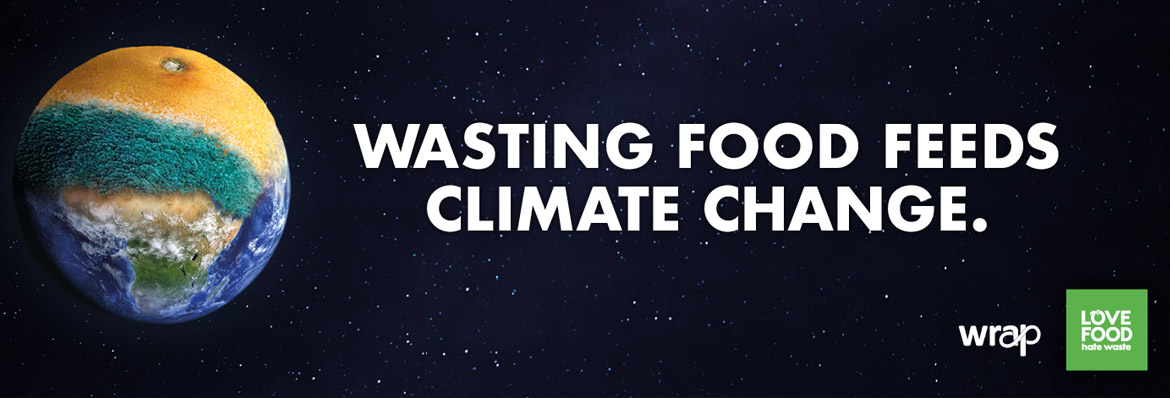Food Waste Action Week 2021

As a nation we waste more food than we think. Did you know that we can help protect our planet by saving food? We have partnered with The Waste and Resources Action Programme (WRAP) charity and Love Food Hate Waste to take action against food wastage. We will also be taking part in the #FoodWasteActionWeek Challenge taking place on Monday 1st March - Sunday 7 March 2021. Will you join us?
This will be the UK’s first national week of action on wasting food, with activities happening across the whole of the UK. The Week will link organisations across the food supply chain and beyond to stop food going to waste and curb the contribution it makes towards climate change.
Christine Ennew, Provost said:
“The University of Warwick has declared a Climate Emergency and set net carbon goals for 2030 and 2050 as an integral part of our broader responsibility to protect our environment. As part of this work, we are committed to educating our staff and students about the circular economy and we are committed to reducing our waste, increasing reuse, recycling and recovery. Food has to be part of this – after all - we all eat and so many of us contribute to high levels of unnecessary food waste.
During Food Waste Action Week we will be engaging with our community through online events and through social media; we will work to educate and we will support research that will help us all to tackle food poverty and food waste.”
Some facts about food waste:
- At least one-third of all edible food produced across the world is never eaten – enough food to feed 2 billion people. That’s just over a quarter of the world’s population
- Global food waste generates 22 million tonnes of greenhouse gases – that’s four times more than all aeroplanes put together
- Everyday the equivalent of 20 million slices of bread are thrown away in UK homes. This could have fed breakfast to 10 million people. And, a year’s worth of wasted bread slices, laid end-to-end, could circle the Earth from pole-to-pole 28 times
- Around 3 million glasses of milk are chucked away in the UK each day. This means that, every year, 36,500 cows are producing milk that is going down the drain
- An average British family can save £720 a year if they stopped throwing their food in the bin
- Each year, UK households throw away 4.5 million tonnes of food that could have been eaten, and on top of this, there’s food being wasted when we eat out
- 81% of people in the UK are concerned about climate change, but only 37% think wasting
food is contributing to climate change.
It's time to act and make more people aware of the impact of wasting food.
How the University has helped to prevent waste so far:
- Collecting unwanted items during Covid-19
- RAWKUS Project
- Food GRP
- Campus and Commercial Services Group
How you can help:
Wasting food is one of the biggest contributors to climate change. A lot of water, land, energy, time and transportation go into producing our food, and yet in UK homes we waste 4.5 million tonnes of edible food every year.
Luckily, there are some simple actions we can all take to keep food out of the bin, and save up to £210 every year.
- Track your food footprint - You can monitor how much food you and/or your family throw away at home each week. You can do this by using a food diary that you can download here. Need some help? Here are some instructions to help you. You can also download the full activity sheet to learn more about the impacts of your savings here.
-
Understanding dates – ‘Use by’ vs ‘Best before’. 'Use by' is about safety – food should not be eaten after this date (even if it looks/smells fine). 'Best before' is about quality – although food won’t be at top quality after this date, it will still be safe to eat for some time after.
- Put half your loaf of bread in the freezer when you get home from the shop. You can then make toast straight from the freezer and never bin a slice again.
- Keep your fridge at a lovely cool temperature of 5°C or below.
- Buy what you eat - buying loose fruit and veg instead of buying a whole bag will help prevent throwing what goes off in the bin.
- Make mini pizzas! - Save your bread end crusts from the bin and make mini pizzas from them instead. Create your own recipe using up leftover food and share your creation with friends and family.
